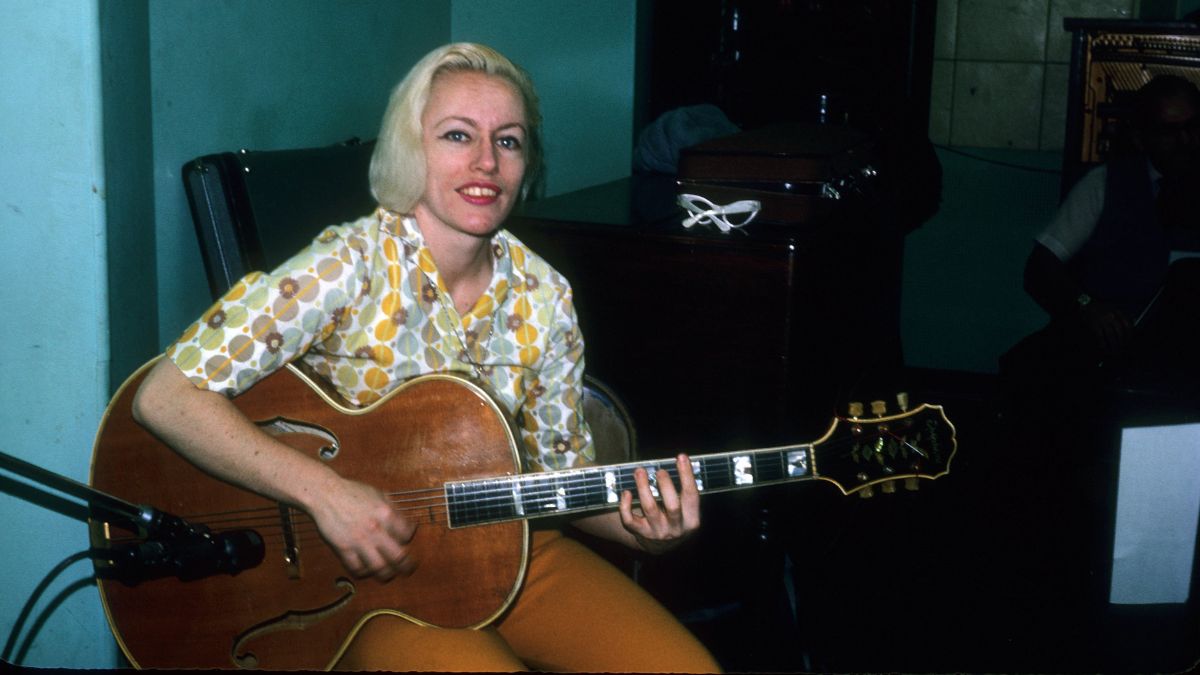“You were part of a team. There were always 350-400 studio musicians working in the busy 1960s”: Carol Kaye has declined her Rock and Roll Hall of Fame induction invitation
The hard-working recording artist and bass guitar icon explained why in a post on social media

All the latest guitar news, interviews, lessons, reviews, deals and more, direct to your inbox!
You are now subscribed
Your newsletter sign-up was successful
Carol Kaye, one of the most prolific recording bass players in rock history, has revealed she won’t be in attendance when she’s inducted into the Rock and Roll Hall of Fame this Fall.
She’s set to be honored as part of the Hall’s Class of 2025 contingent, which includes several other overdue nods, with The White Stripes, Soundgarden, Bad Company, and Outkast among Kaye’s classmates.
However, the 90-year-old, estimated to have played on over 10,000 recording sessions and heard on records by Beach Boys, Frank Sinatra, and the Supremes, has declined her invitation to November’s event.
“People have been asking: NO I won’t be there. I am declining the rrhof awards show,” she wrote on a now-deleted Facebook post, dated Wednesday, June 18.
Kaye says she is “turning it down because it wasn’t something that reflects the work that Studio Musicians do and did in the golden era of the 1960s recording hits.”
She first stepped into a recording studio in the late 1950s, laying down rhythm guitar on Sam Cooke's arrangement of the jazz standard, Summertime. She later pivoted to session work and became a talent in hot demand across the ’60s and ’70s as part of a group of musicians affectionately known as the Wrecking Crew. Kaye, however, doesn’t take kindly to being considered a Wrecker.
“You are always part of a team, not a solo artist at all,” she explains, perhaps finding it odd that she’s been singled out for the honor. “There were always 350-400 studio musicians (AFM Local 47 Hollywood) working in the busy 1960s, and called that only. Since the 1930s, I was never a ‘Wrecker’ at all…. that’s a terrible insulting name.”
All the latest guitar news, interviews, lessons, reviews, deals and more, direct to your inbox!
A post shared by Stereogum (@stereogum)
A photo posted by on
Before her Summertime gig, Kaye was a jazz guitarist, adding that she was “accidentally asked to record” on the track, and then “accidentally placed on a Fender Precision Bass in mid-1963 when someone didn’t show,” leading to her prolific spell as a bass player.
“I never played bass in my life, but being an experienced recording guitarist, it was easy for me to invent good bass lines,” she adds. “As a Jazz musician, you invent every note you play, and they used a lot of Jazz musicians.”
Notable spots as a bass player saw her set the tone for Quincy Jones' Hikky-Burr, which became the soundtrack to the Bill Cosby Show, and the Beach Boys' iconic LP, Pet Sounds.
“My job was to add feel and groove to Brian’s written bass parts,” she once told Bass Player. “I tried to keep it cooking for him.”
She's also said that it took 36 hours to cut Good Vibrations – “we knew it was a big deal” – and in a rare interview, the band's late figurehead, Brian Wilson, was full of praise for her craft.
On personal achievements alone, it is easy to see why so many have campaigned for her inclusion into the Hall’s history books. But it’s also easy to understand why Kaye, seeing herself as one cog in a much larger music-making machine, doesn’t sit easily with the spotlight on her.
Her Facebook post signs off by saying: “I refuse to be part of a process that is something else than what I believe in, for others' benefit and not reflecting the truth. We all enjoyed working with each other. Thank you for understanding.”
A post shared by Rock & Roll Hall of Fame (@rockhall)
A photo posted by on
Drummer/producer Questlove has a different take on the situation. Commenting on Stereogum's Instagram post, which featured a screenshot of Kaye's post, he says: “I appreciate the sentiment, but on the other side of this coin, not getting your flowers and receiving love isn’t serving anyone here.
“For historical context, the world needs to see her receive this accolade,” he adds, seeing her as representative of the wider session musician scene.
Kim Thayill, meanwhile, believes Soundgarden’s induction marks a positive posthumous chapter in the legacy of Chris Cornell.
A freelance writer with a penchant for music that gets weird, Phil is a regular contributor to Prog, Guitar World, and Total Guitar magazines and is especially keen on shining a light on unknown artists. Outside of the journalism realm, you can find him writing angular riffs in progressive metal band, Prognosis, in which he slings an 8-string Strandberg Boden Original, churning that low string through a variety of tunings. He's also a published author and is currently penning his debut novel which chucks fantasy, mythology and humanity into a great big melting pot.
You must confirm your public display name before commenting
Please logout and then login again, you will then be prompted to enter your display name.


